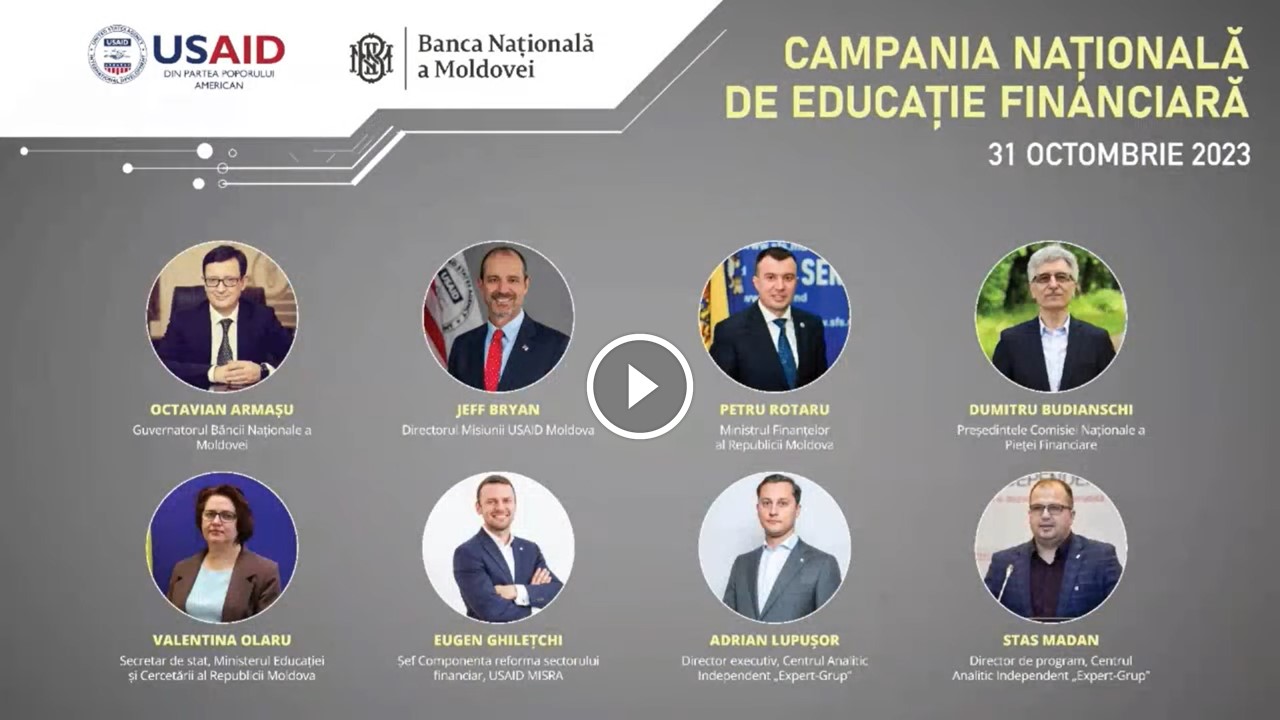Welcome to the official website of the National Bank of Moldova!
×
Do you have good eyesight and want to turn this tool off?
Do you have good eyesight and want to turn this tool off?
Schedule of reception of citizens by the Executive Board of the National Bank of Moldova.
The registration of applicants for an audience is carried out based on a written request on the subject addressed.
Anca Dragu, Governor
1st Wednesday of the month: 14.00-16.00.
Petru Rotaru, First Deputy Governor
2nd Wednesday of the month: 14.00-16.00.
Tatiana Ivanicichina, Deputy Governor
3rd Wednesday of the month: 14.00-16.00.
Constantin Șchendra, Deputy Governor
4th Wednesday of the month: 14.00-16.00.
Mihnea Constantinescu, Deputy Governor
5th Wednesday of the month: 14.00-16.00.
Welcome to the official website of the National Bank of Moldova!
If you want to send a message (question or suggestion) on-line, go to section "Feedback" from the main menu at the top of the website.
You can choose one of the most popular reports from the list:
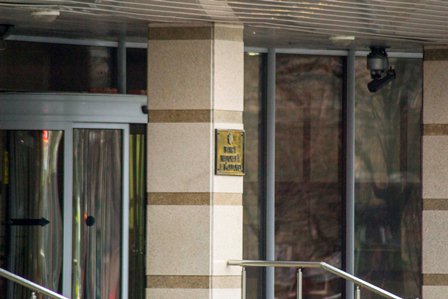
National Bank and the members of its decision-making bodies shall be independent in exercising the tasks conferred upon them by law, and shall neither seek nor take instructions from public authorities or from any other authority.
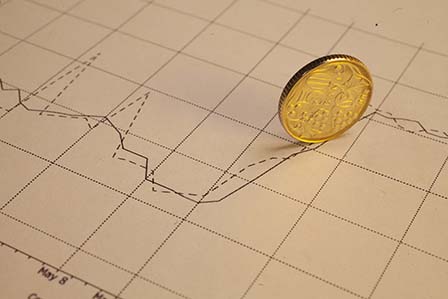
In order to ensure and maintain price stability over the medium term, the National Bank’s aim will be to keep inflation (measured by Consumer Price Index) at the level of 5.0 percent annually with a possible deviation of ± 1.5 percentage points, considered to be optimal for growth and development of Moldova's economy over the medium-term.

Financial stability is achieved by strengthening the resilience of the financial system, limiting the contagion effect and reducing the accumulation of systemic risks, thus contributing to the sustainability of the financial sector and economic growth.

National Bank shall have the exclusive right to issue on the territory of the Republic of Moldova banknotes and coins as legal tender, as well as commemorative and jubilee banknotes and coins as legal tender and for numismatic purposes.

National Bank is exclusively responsible for the licencing, supervision and regulation of financial institutions activity.
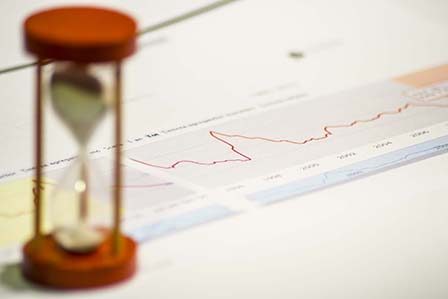
National Bank of Moldova acts as banker and fiscal agent of the State and shall receive from state bodies economic and financial information and documents, which are necessary for carrying out its tasks.
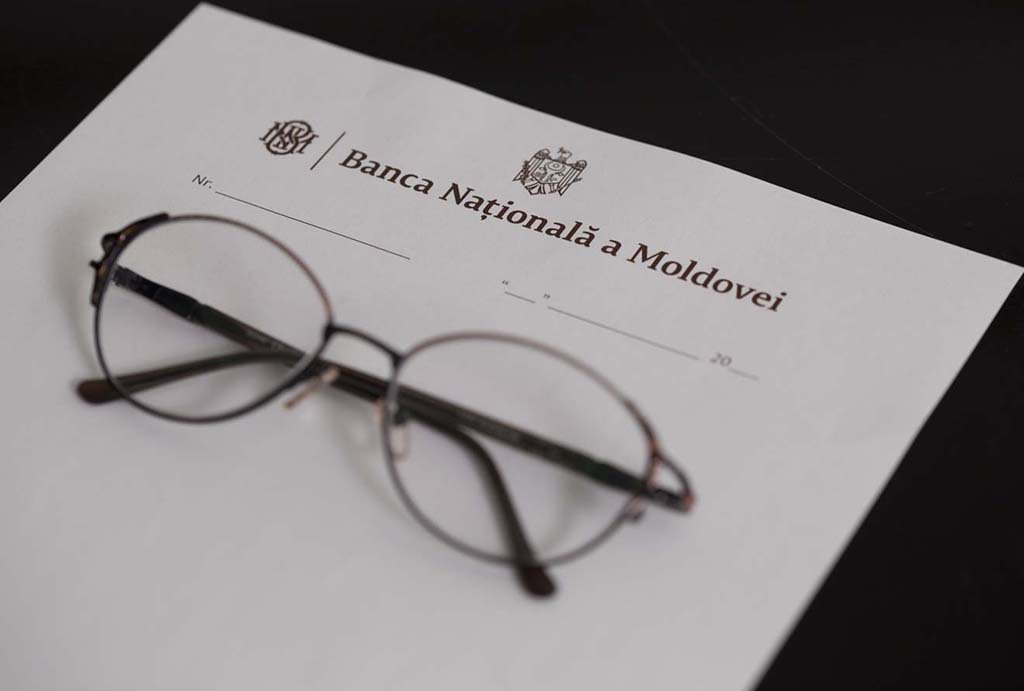
National Bank of Moldova is an autonomous public legal entity and is responsible to the Parliament.

National Bank shall inform the public on the monetary policy strategy on the results of the macroeconomic analysis, the evolution of the financial market and on statistics, including with regard to monetary supply, crediting, balance of payments and the state of the foreign exchange market.

National Bank of Moldova is responsable for the compilation of the balance of payments, international investment position and the statistics of the external debt of the Republic of Moldova.
The website www.bnm.md prioritizes data security and uses cookies to enhance the browsing experience and user comfort. Accepting the use of cookies contributes to faster page loading and ensures the proper functioning of the information presentation modules. Refusing to use cookies may slow down the site’s loading speed and hinder smooth navigation between pages. For more details, please refer to the Cookie Usage Policy.
Configure your cookie preferences by category. Strictly necessary cookies cannot be disabled, as they are essential for the proper functioning of the website.
These cookies are fundamental to the correct operation of the website. They include session cookies used for load balancing and maintaining the application's state.
Cookies: cookiesession1, JSESSIONID
These cookies enable personalized features, such as font size preferences, interface state, and selection of desktop/mobile version.
Cookies: has_js, fontCookie, statistics_time, statistics_tooltip, bnm_coins_expansion, desktop_version
Such cookies help us understand how visitors interact with our site by collecting and reporting information anonymously.
Cookies: _ga, _gid, _gat, node_stat
These cookies store accessibility preferences, such as text size, contrast, cursor size, and animation settings.
Cookies: a11y_oversized_widget, a11y_animation, a11y_invert, a11y_contrast, a11y_dyslexic, a11y_cursor, a11y_factor
The largest financial education campaign in the experience of the Republic of Moldova was launched on International Savings Day, which is celebrated every year on 31 October. It will be carried out by the National Bank of Moldova (NBM) in partnership with the Independent Think Tank "Expert-Grup", with the support of the USAID "Moldova Institutional and Structural Reforms Activity (MISRA)" Programme.
The campaign's priorities were announced today at a public event, along with the results of a survey assessing the financial education of the population of the Republic of Moldova.
The event brought together officials from the Republic of Moldova, financial and banking sector representatives, education, civil society, economic experts, and external partners.
"Let's help citizens to integrate more easily into the financial world, especially now, when innovative technologies are advancing at an accelerating pace," remarked the Governor of the National Bank of Moldova, Octavian Armașu. "It is important for the public to understand the work of the banking sector and what is happening in the financial environment. Thus, financial education is an essential part of communication, and its basis and priority are to support any citizen who wants to develop financial literacy," added the Head of the central bank.
Jeff Bryan, USAID Mission Director for USAID Moldova, highlighted at the campaign launch the importance of understanding financial principles by citizens who lack the knowledge and skills to make informed financial decisions. Financial literacy is not a luxury; it is a necessity, said the Director for USAID Moldova.
The national financial education campaign targets all citizens, regardless of age and occupation, and aims to increase financial education efforts within society.
Thus, consumers will learn what saving and investment opportunities do exist in the Republic of Moldova, the link between risk and income, how to correctly compare different credit offers, what are the risks associated with cryptocurrencies, etc. These and many other useful information for making correct financial decisions will be presented in explanatory notes, video tablets, infographics, and video graphics, as well as in a web module that has to be developed.
The campaign will run for one year, until autumn 2024, and will cover the entire territory of the Republic of Moldova.
About two-thirds of respondents rated themselves at the "medium" level of financial knowledge. More citizens consider themselves to have low (19.4%) financial knowledge than those who claim to have above average knowledge (12.9%).
Also, 86.5% of the respondents mentioned that they have a financial goal, and the top 3 concerns in terms of financial objectives of the respondents are: ensuring daily financial needs, improving living conditions and saving money for own or children's education/studies, etc. Overall, the financial goals stated by the respondents reveal mainly current concerns, but also a very low interest in investments and entrepreneurship.
When asked about planning and management, the data show that in 55.6% of households the responsibility for making daily money-related decisions is shared, while in 39.3% of households the decisions belong to one member. In about 4 out of 5 households’ income and expenditure management is planned and/or expenditure is recorded. At the same time, 28% of respondents use a banking application or other money management tool to keep track of expenses.
The questionnaire also provides information on how people are saving, their retirement plans, as well as their income, expenditure, and payments etc.
The sociological study was conducted, on the basis of the OECD methodology, in September-October this year, among 1024 people, aged between 18 and 75 years old, representatives of the Republic of Moldova, excluding the localities on the left side of the Dniester River.
The data obtained from the survey will be used as a basis for the development of the Strategic Financial Education Programme at national level, within the framework of the strategic assistance provided by USAID, and the financial education campaign launched today.
1 Grigore Vieru Avenue,
MD-2005, Chisinau, Republic of Moldova.
© National Bank of Moldova
Terms of use
Cookie Usage Policy





